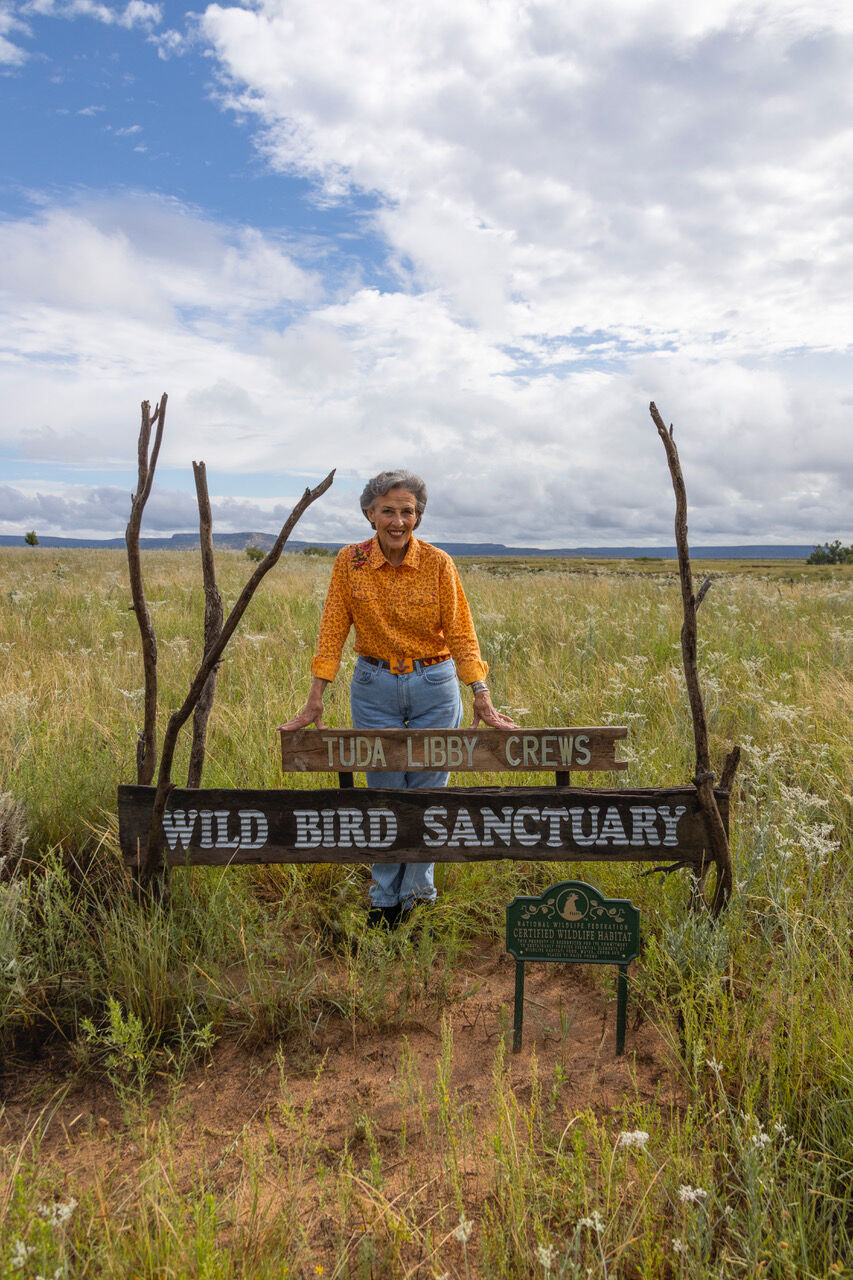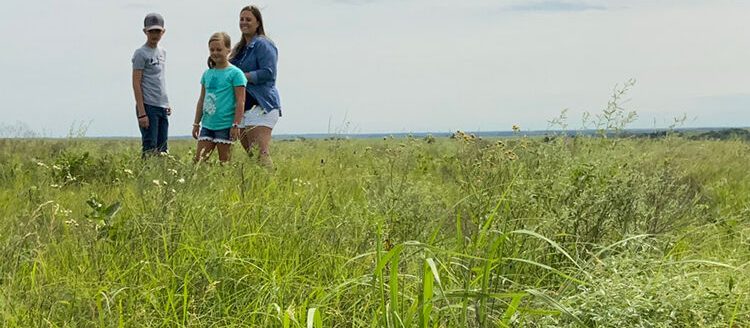The Leopold Conservation Award is given to farmers, ranchers and forestland owners across the U.S. in honor of renowned conservationist Aldo Leopold. In his influential 1949 book, A Sand County Almanac, Leopold called for an ethical relationship between people and the land they own and manage.
Inspired by seven generations of family on the land and Aldo Leopold’s land ethic, Tuda Libby Crews approached land restoration by collaborating with others. Tuda and her husband, Jack, realized restoration of Ute Creek Cattle Company required open minds, innovation, and financial and technical resources. Implementing conservation practices has transformed their shortgrass prairie ecosystem.
Partnering with the Natural Resources Conservation Service in 2002, an Environmental Quality Incentives Program contract helped the Crews establish an adaptive grazing system to create 23 pastures from the original four. A water distribution system was established with pipelines and storage tanks to provide water for livestock and wildlife.
Time-managed adaptive grazing of their Angus cow herd remains critical to all of the Crews’ soil health and wildlife habitat goals. This system maximizes forage production, soil disturbance and natural fertilization, while increasing wildlife habitat on the once ecologically degraded landscape. Grazing riparian areas in the dormant season protects bird species in that prime habitat during breeding/nesting seasons.
Tuda and Jack stabilized creek banks with erosion-control materials. They cut and piled three miles of dead salt cedar trees to create habitat for quail. Grazing goats also helped control salt cedars and other invasive species. Within 10 years of partnering with NRCS, New Mexico Water Trust Board, and Ute Creek Soil & Water Conservation Service, Ute Creek was a perennial water source and regional model of riparian restoration.



